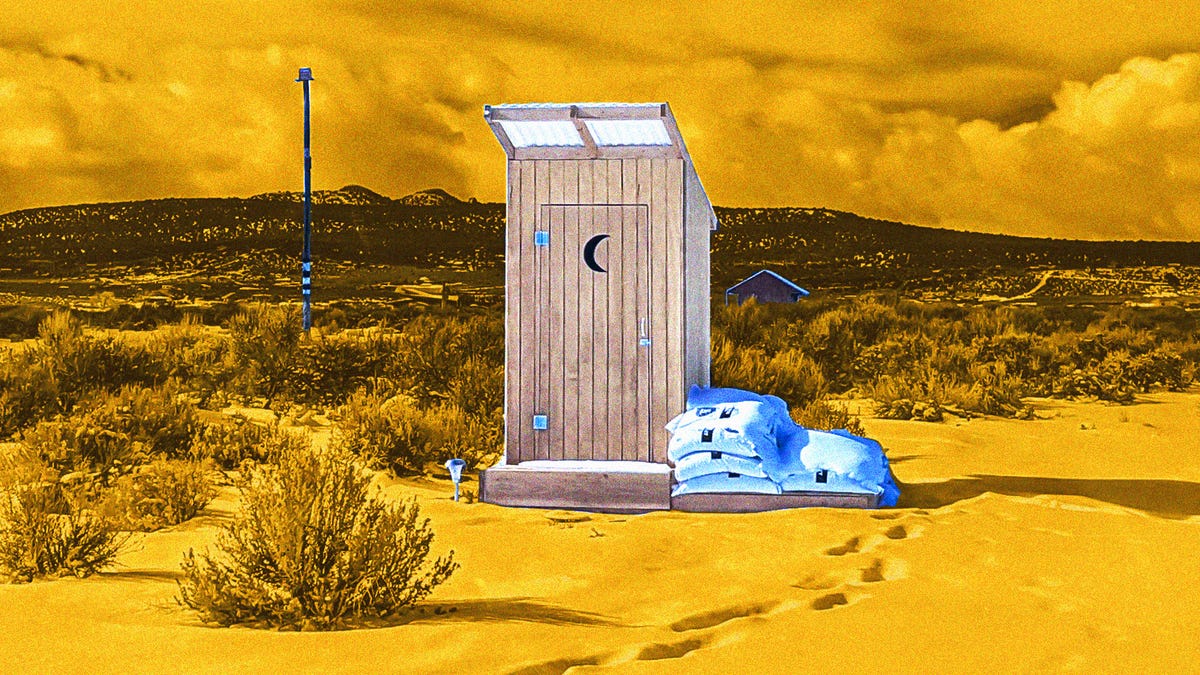Why I Started My Journey to Energy and Water Independence
Living off the grid gave me a new perspective, fewer bills and increased independence. It also led to a deeper transformation and reckoning with some old inadequacies.

Living off-grid can mean new ways of going about things.
It's a tragic accident of history that we designed modern civilization around burning fossil fuels before we figured out efficient means of storing the practically limitless amounts of clean power put out by the sun.
That's why I moved my family off-grid. We source all our water, heating, power and everything else we need without any public infrastructure.
My journey to energy independence began many years ago when I lived in Alaska for a job and found myself living alone in the sub-Arctic and barely able to take care of myself.
Everything in my provided housing (an inadequately insulated trailer) was frozen, including the water in my toilet. I didn't know how to start the gas heater or use the chainsaw to cut firewood for the back-up stove. I couldn't even swing an ax to chop what little split wood was available.
At the village bar, an inebriated local sized me up and told me I wouldn't make it there. If I had any money at that moment, I would have bet against myself too. I was humbled and ashamed of my incapacity and frustrated by my inability to do much about it.
I've figured out a lot since then. Moving off-grid was in some way an opportunity to see if I might now be able to measure up to some of the challenges I wasn't up for when I was younger.
Not only have I been able to remove a lot of clutter from my life, deepened relationships with the remaining people and things but I can finally face up to some of those shortcomings.
New place, new challenges
When I left Alaska, I dove into starting a family and a career in media. But my wife and I continued to seek out places with more rugged, frontier-adjacent lifestyles. This is how we landed in rural New Mexico, a land where scientific projections forecast a decades-long megadrought, which is probably already underway.
Recycled water grows lush vegetation and nutritious tomatoes and zucchini in the high desert of New Mexico.
So we're becoming good at conserving water, not just to avoid hauling it, but also to prepare for a future with increased scarcity.
Rainfall in the high desert is always a magical thing, but it's all the more satisfying watching it drip into our storage tanks, knowing it will sustain my family, clean our clothes or our dishes and then be reused again to grow berries in the yard that further sustain us.
It can become a game to see how far the water can go. During a downpour I'll toss some extra buckets outside and use that water for cement and stucco in some ongoing DIY projects. That rain is now a permanent part of the house.
The same vigilance goes for keeping track of the wattage coming in and out of the house via a modest maze of copper wire. I now know my TV uses almost as much electricity in sleep mode as it does blasting a Tarantino classic throughout the house. And I'd estimate the average shower uses around four times more water than what's actually required.
There's a deep irony here: for much of my life electricity has seemed like an infinite resource always available to me via the simple flip of a switch or push of a plug thanks to a reliable power grid. Of course, the reality is that most of those on-the-grid electrons were derived from finite fossil fuel resources and the bill for them came due each month in the form of an actual invoice from the utility as well as carbon emissions released.
Today my electricity comes from a resource that doesn't get depleted by my using it. There are almost no bills to pay, either monetarily or environmentally, and yet I track it more meticulously than I ever did on the grid.
Living off-grid means learning to live with the resources available, even in the desert of New Mexico.
I found a better way
Water is easily a more valuable resource than electricity. It's more scarce (especially in potable form), finite and essential to life.
This makes it all the more frustrating that we, as a species, still prefer to source our energy using destructive means requiring more impressive engineering than what we had to do to go off the grid.
It's a tragic accident of history that we designed modern civilization around burning fossil fuels before we figured out efficient means of storing the practically limitless amounts of clean power put out by the sun.
There's just no way that things like horizontal drilling techniques, fracking and shale oil extraction are the best use of resources when a guy like me who couldn't start his stove in Alaska can manage to set up a cleaner, free alternative on my own.
But I did do it, which means a lot of us can. Which means less demand for destruction, not to mention being able to leave a light on every now and then, guilt-free.
Although, those compact fluorescent bulbs don't last forever, so better to hit the switch.



